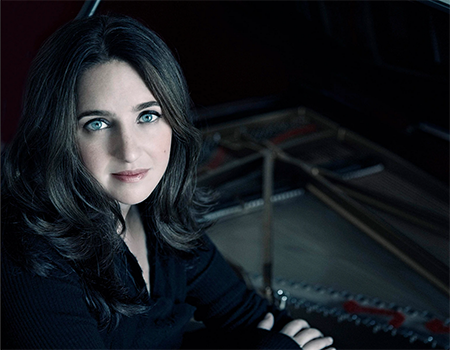by Daniel Hathaway
At 12 Noon, organist Kingsley Wood plays music by Marcel Dupré, Vincent Lübeck & J.S. Bach at the Church of the Covenant, and at 7:30, pianist Simone Dinnerstein, plays works by Jean-Phillipe Rameau, Philip Lasser, J.S. Bach, (his 15 Three-Part Inventions) & Keith Jarrett (Encore from Tokyo). on the Tuesday Musical series at Akron’s E.J. Thomas Hall.
For details of these and other upcoming events, visit our Concert Listings.
TODAY’S ALMANAC:
Two eminent composers left this life on November 19, due in both cases to microbes: German Johann Hermann Schein (of the plague) in 1630 in Leipzig, and Franz Peter Schubert (of typhus) in 1828 in Vienna.
Schein, a friend of Heinrich Schütz who was likewise influenced by early Italian Baroque music, preceded J.S. Bach at Leipzig’s Thomaskirche, and wrote equal quantities of vocal and instrumental music. His instrumental suites, collected in the 1617 publication Banchetto musicale, were meant to be played during dinner, as the title suggests.Visit the special sound world of Schein’s era with Intrada 21, played on the wonderful, buzzy instruments of the curtal and rackett family by the Unholy Rackett ensemble.
Schein’s sacred music is replete with madrigalesque word painting, as you can hear in his 1623 cycle Israelis Brünnlein, performed by Gli Angeli Genève at the Geertekerk in Utrecht in 2011. Zero in on one of the movements, the motet Die mit Tränen säen (“Those who sow with tears”), with Philip Herreweghe and the Ensemble Vocal Européen in this follow-along-with-the-score performance.
Schubert is so ubiquitous in the concert hall that we’ll just give a tip of the hat to his wonderful cello quintet, performed here (first movement only) on a ChamberFest Cleveland concert in Harkness Chapel in 2015, before we move on to less-familiar repertoire.
Those works would include Schubert’s songs for male chorus, which imbibe the spirit of Austro-German Romanticism (quite literally — many of them are drinking songs). Robert Shaw recorded ten of them in 1992 with an ensemble drawn from the Robert Shaw Chorale. Listen here.
The spirit of the forest is invoked both musically and instrumentally in Schubert’s Nachtgesang im Walde for male voices and four valve horns, performed here by members of the Vienna State Opera Chorus and Vienna Symphony.
Even more emblematic of Schubert’s philosophical world are his three settings of Johann Wolfgang von Goethe’s Gesang der Geister über den Wassern (“The soul of mankind is like water”). One is for unaccompanied male chorus, a second, entirely different setting that the composer left unfinished adds piano, and the remarkable third version — again completely different — adds an ensemble of low strings. Listen to No. 3 as performed in 2011 by the Norwegian Soloist Choir and the Oslo Camerata, directed by Grete Pedersen.




